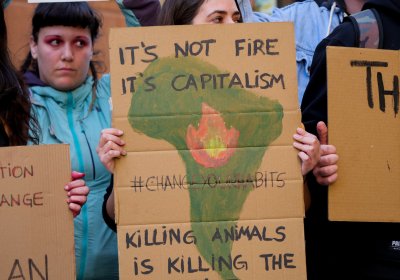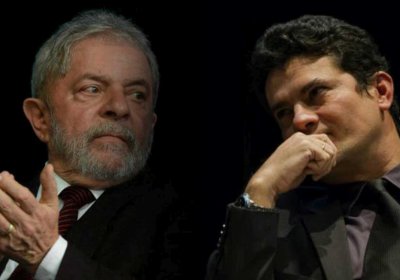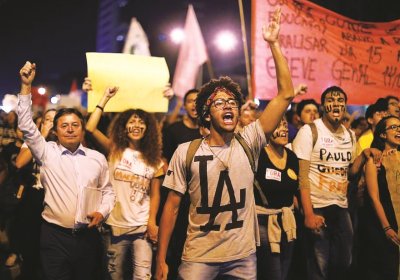Already immersed in an overlapping health and economic crisis, Brazil is now also being engulfed by a political crisis. Sao Paulo University professor André Singer outlines some of the key dynamics underpinning the current situation in Brazil.
Brazil
Overwhelmed by the coronavirus health emergency, Brazil's far-right, anti-Cuban administration has fallen back on the small nation for medical support— requesting help from the very same Cuban doctors it expelled months ago, writes Ben Norton.
On November 7, the Brazilian Supreme Court declared it illegal to jail defendants before their appeals’ processes have been exhausted. Within 24 hours, former President Luiz Inácio Lula da Silva was released to an adoring crowd of hundreds. Despite this, the corporate media is continuing its smear campaign against him.
Rio de Janeiro’s population watched in shock on August 20 as the state’s governor, Wilson Witzel celebrated the shooting by a sniper of a 20-year-old Black man who held 37 people hostage on a bus. The perpetrator had mental health problems, had never been in trouble with the police and had a plastic gun.
While Witzel’s tactics have been applauded, the politician’s merriment as he jumped from the safety of his helicopter to compliment the sniper, revealed the current security regime being enforced in the state.
La Via Campesina is a global social movement that unites 148 groups representing small farmers, peasants, rural workers and indigenous communities around the world.
It fights for food sovereignty and ecologically sustainable agriculture.
It released the following statement on the Amazon fires on August 24.
Messages between Brazil’s federal prosecutor, Deltan Dallagnol, who led Operação Lava Jato (Operation Car Wash) and then-judge, Sergio Moro, have revealed that the evidence used to jail Brazil’s Workers’ Party (PT) former president Luis Inacio “Lula” da Silva, was tenuous at best and that the charges against him may have been groundless.
"The Amazon rainforest has been burning for three weeks! We are on the verge of losing it completely if the fire isn't put out. The loss of trees, the loss of biodiversity is what is accelerating climate change."
Since Brazil’s 2016 parliamentary coup d’etat, in which former president Dilma Rousseff was removed on a later-exonerated technicality, Brazil’s ultra-right-wing president Jair Bolsonaro has made every effort to destroy any remnants of the legacy left by the Brazilian Workers’ Party (PT).
Strikers stopped public transport, blocked roads and held street demonstrations in 380 cities across Brazil on June 14.
A nationwide education strike on May 15 became the platform for the biggest anti-government protests since President Jair Bolsonaro took power.
Brazilian solidarity activists rallied in Sydney on April 7.
Speakers called for the release of jailed former Brazilian president Lula Da Silva and spoke out against the far-right government of Jair Bolsonaro and its attacks on democracy.
On March 14, 2018 in the centre of Brazil’s Rio de Janeiro, two gunmen in a car murdered Municipal Chamber Councilor Marielle Franco and her driver, Anderson Pedro Gomes. Unlike most of the city’s political leaders, Marielle came from Rio’s favelas. And many of the favelas’ millions of marginalised and mostly black residents saw her as their champion.
- Previous page
- Page 4
- Next page











